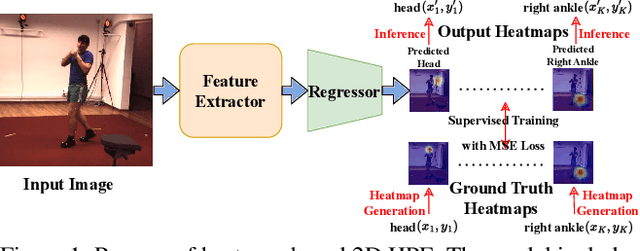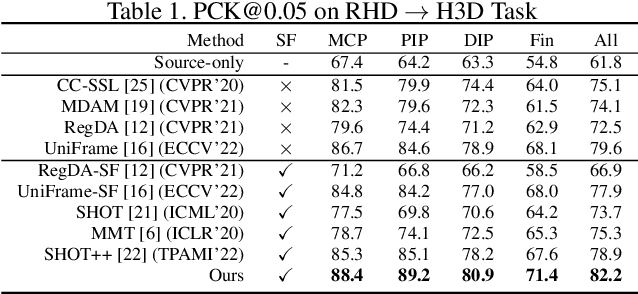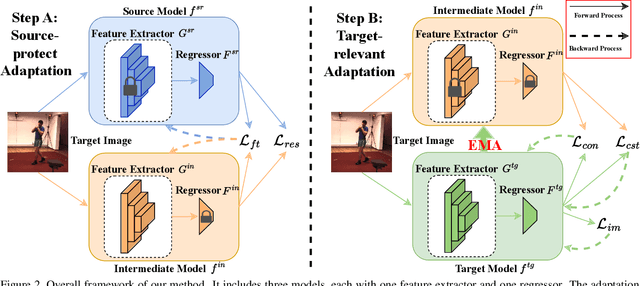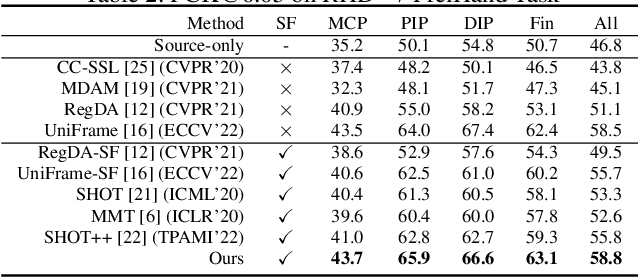Source-free Domain Adaptive Human Pose Estimation
Paper and Code
Aug 18, 2023



Human Pose Estimation (HPE) is widely used in various fields, including motion analysis, healthcare, and virtual reality. However, the great expenses of labeled real-world datasets present a significant challenge for HPE. To overcome this, one approach is to train HPE models on synthetic datasets and then perform domain adaptation (DA) on real-world data. Unfortunately, existing DA methods for HPE neglect data privacy and security by using both source and target data in the adaptation process. To this end, we propose a new task, named source-free domain adaptive HPE, which aims to address the challenges of cross-domain learning of HPE without access to source data during the adaptation process. We further propose a novel framework that consists of three models: source model, intermediate model, and target model, which explores the task from both source-protect and target-relevant perspectives. The source-protect module preserves source information more effectively while resisting noise, and the target-relevant module reduces the sparsity of spatial representations by building a novel spatial probability space, and pose-specific contrastive learning and information maximization are proposed on the basis of this space. Comprehensive experiments on several domain adaptive HPE benchmarks show that the proposed method outperforms existing approaches by a considerable margin. The codes are available at https://github.com/davidpengucf/SFDAHPE.
 Add to Chrome
Add to Chrome Add to Firefox
Add to Firefox Add to Edge
Add to Edge